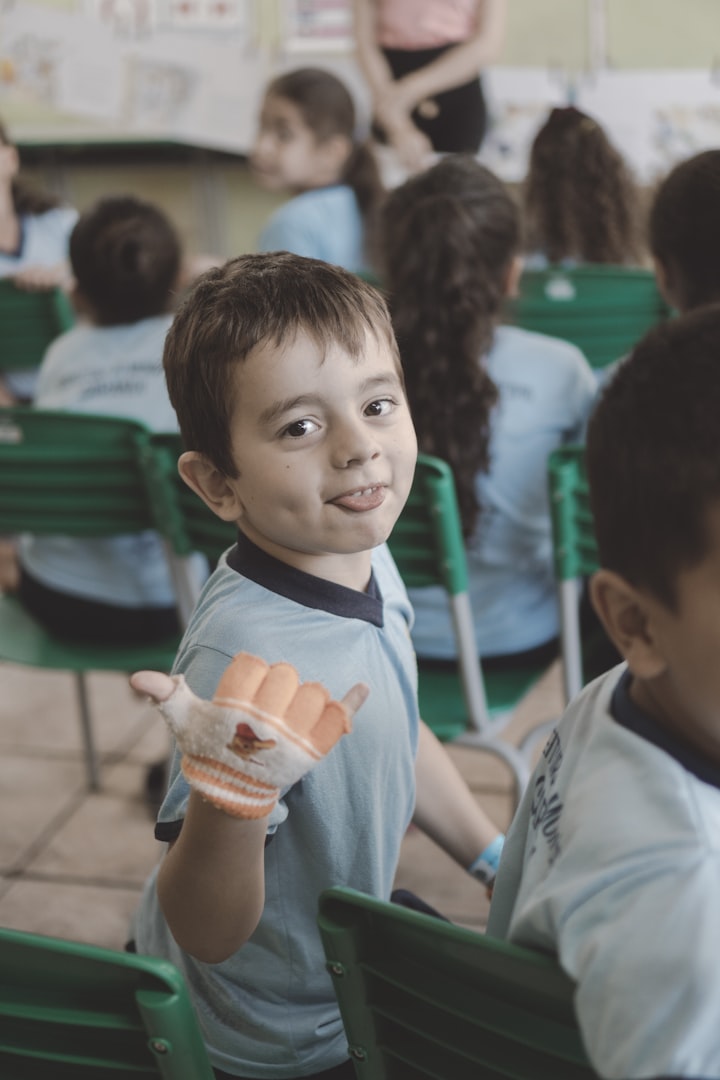ROLE OF SCIENTIFIC LITERATURE IN MULTIDIMENSIONAL DEVELOPMENT OF CHILDREN
What do we mean by 'meaningful literature"? It is the literature that suits a child's psychology, contains unique content and offers novelty. Unless it presents something innovative, a child would never be attracted to it.

A child is the unit of the family that provides foundation to it, carries the heritage of the rituals
and traditions, communicates the knowledge, provides a window to the society and acts as the conscience of the time. Alwaws curious like a scientist. the child questions and seeks answers to expand their horizon.
That tender, innocent mind is always eager to learn something new, the are full of originality, inquisitiveness, emotions creativity, playfulness, attention, fun-loving, appetent, and active. But quite often their quest remains neglected and unattended. Their emotional needs and expectations remain unquenched. Their mental development is forgotten under the stress of the present time and priorities of the adults!
The children of present time seem helpless and entangled, as if stuck in a web of what, why, how, when, where, that continuously rise in their mind and quite often remain unanswered. They need someone who would answer their queries and meaningrul niterature is their best option in such situations.
What do we mean by 'meaningful literature"? It is the literature that suits a child's psychology, contains unique content and offers novelty. Unless it presents something innovative, a child would never be attracted to it. Besides being humorous, funny and interesting, the literature must be thought provoking and encourage learning by doing. If it contains imaginary fairy land with mysteries and adventures
then it must have the realism associated with the environment.
It must include the possibility of analysis-synthesis and argument. Children do not need books that only teach or provide knowledge. It should provide them opportunities to draw conclusions from the facts presented, and then only it would be reckoned meaningful. It should be based on scientific rationale with possibilities of problem solving.
Let us explore some examples to establish my observations.
A story talks about a fictitious germ city. One day there comes a little germ that looked amazingly healthy and all pink and pleasant. All germs in the city want to know the secret of its health. The little germ explained how it lodged itself in the dirty tooth of a child, Nirmal Kumar, and lived happily ever after. Nirmal Kumar never brushes his teeth or eats the right kind of food. He avoids salad, fruits, milk and green vegetables.
Instead, he gorges on fried, spicy food and sweets. The little germ told all the germs in the city that if they wanted a nice life, they should live in Nirmal Kumar's teeth! But, they must stay away from Shubhra, who sits beside Nirmal Kumar in the same class. Shubhra brushes her teeth daily, rinses her mouth and eats green vegetables and drinks milk and controls her diet. She always rinses her mouth immediately after eating sweets. If they enter her teeth, they would perish soon, as they would be immediately flushed off. The story ends here, leaving the decision to the readers: what they would like to do? Be like Nirmal or Shubhra?
Many a time, in pursuance ot presenting scientitic composition, we forget using logic and power of analyses and observation, which are effective tools that compel the readers in thinking scientifically. Often, an apparently illogical and meaningless piece leads to original, interesting, humorous and significant scientific content. Let us go through this poem titled "Wedding of a Needle" to explore my points.
The Needle once said to the knife,
"Please help me find a spouse.
See how thin and lean I've become
I'm so lonely in this big house."
Scissors and knite set off For needle to find a husband dear, They searched and hoped that She'll remain free, no work and no fear.
The Knife got a fork,
While the scissors brought a cloth, But who would be the spouse?
Fork or the cloth, they fought and fought.
"Don't you fight, I got the thread!!"
The thread also came forward and said,
"Yes, for vou the needle, I am made."
Here is one more reference; the title is "Owl and the Black Goggles." The most humorous context is why would an owl need black goggles? An owl sleeps through the whole day and is awake only at nights. So, why on earth he needs a sunglass?
Forest dwellers were all at a loss. The owl asks the crow to bring the goggles for him. Now there is a commotion in the forest; why the one who sleeps during the day needs goggles? They all went to ask the owl. The owl burst into laughter after listening to them. Then he explained that as the colour black absorbs heat, he wanted to use the goggles to warm up his eyes as some whit got into it. He thought while he sleeps during the day the goggles would get some heat from the sun and would also save it from direct sunlight. And this might also help him in having a sound sleep! Dwellers of the forest were also amazed with his
wisdom and they understood how science can be used for their benefit. The narrative is not onlv funny and entertaining but at the same time convevs a scientific message Here I would like to present one more example that compels children to imagine. It is a poem, "The Rainbow-colored Umbrella of the little Fish." A little fish wanted a colourful umbrella. Isn't it odd for someone living in water needing an umbrella to protect itself from water? Children would not only wonder but would be eager to know further out of curiosity. The little fish, who thinks like a child, explains to her mother why she needs an umbrella. To emphasize her point, she lists various advantages of an umbrella; for example, one can hide under it, it can save her from big fish, she can tease her grandmother hiding under it, she can show magic to her friends while twirling it to make it look white and so on.
Human beings have polluted the environment with poisonous carbon; so when it rains, she would also use it to stay away from the poisonous water. The reasons she presents are interesting, logical and scientific and also spread awareness against pollution. This is an effective way to spread awareness among children without being preachy.
Children must never be stopped to asking questions Instead, they should be motivated to enquire more without hesitation or fear. The only way to know is to ask questions!! I would end my conversation with this poem, "Ask It!"
If nothing gets into the head, ask it, ask it!
Why in the morning rises the Sun?
How wheels on the road run?
Why things fall down?
Without air, why the ball cannot roll?
Why a few things float or drown?
Under water, why is the fish happy and full of bliss?
Ask it, just ask it!
Why water changes shape?
Why clouds roar in the sky?
The rainbow doesn't show up daily, why?
Why we don't have money on trees?
How the mangoes ripe soon
When covered with dry grass and straw?
Ask it, ask it!
Why water turns into steam?
Why winters and summers
Come without a call?
How to know how far
Live the sun, moon and the star?
How happens the eclipse
When grandma keeps me inside?
Ask it, just ask it!
How trees make seeds?
How do we grow so many things?
Leaves make their food every day,
Why nothing they ever say?
Trees clean the air!
How they do this with flair?
Ask it, ask it!
Why we daily cook?
But why salad only raw is good?
Why eating gives us energy? and jumping around makes us tired?
Why the milk boils when we heat it?
Ask it, ask it!
From where comes all the colours?
And why white contains them all?
Why cannot we see colours in dark?
And why black is always bad in the lurk?
Why red warns us risk?
Ask it, ask it!
Where do we stop counting?
What are these divisions and multiplying?
How to measure the infinite?
Where does the zero sleep at night?
Who made these tables that give us fright?
Ask it, just ask it!
How do the children come on Earth?
Why tears flow when we weep?
Why we dream in our sleep?
Why the spent time never comes back?
How in the world of questions we shine bright?
Ask it, you just ask it!
About the Creator
Jayveer Vala
I write.






Comments
There are no comments for this story
Be the first to respond and start the conversation.